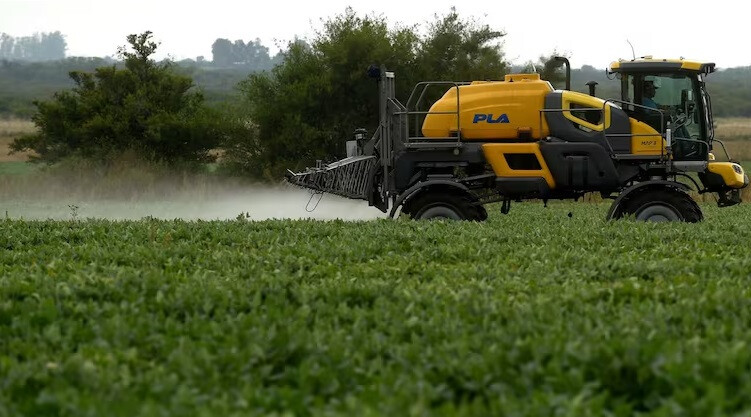
The Agriculture and Livestock Committee of the Paraguayan Chamber of Deputies has expressed its support for a bill that strengthens penalties, including imprisonment, for failing to comply with minimum safety standards when spraying pesticides. This will apply to both aerial and ground spraying of pesticides and is interpreted as a strong declaration of commitment to environmental protection.
The bill proposes to expand and amend Article 4 of the current "Environmental Crime Law (Ley N° 716/96)." Currently, this article defines illegal logging, forest fires, deforestation of protected forests, illegal timber trade, and the construction of hydraulic facilities that alter the natural water system of wetlands or water sources without the authorization of the relevant authorities as serious environmental crimes, punishable by imprisonment for three to eight years or a fine equivalent to 500 to 2,000 days.
The proposed amendment seeks to broaden the scope of punishment by adding the following to the article: "The act of spraying pesticides, fertilizers, insecticides, herbicides, or any other type of agricultural chemical, regardless of its toxicity classification, aerially or on the ground, without complying with the protected zones specified in the relevant regulations, in adjacent residential areas, public or private educational institutions, health centers and medical facilities, squares, public gathering places, water sources, and waterways."
Congressman Juan Maciel, who introduced the bill, emphasized the need to regulate the widespread indiscriminate use of pesticides in Paraguay. He pointed out that Paraguay imports more than 50,000 tons of pesticides annually, leading to serious environmental and public health problems. In fact, Paraguay is a large agricultural country, and significant amounts of pesticides are used, particularly in large-scale soybean farms. This has consistently raised concerns about various environmental issues such as water pollution, soil degradation, and biodiversity loss. Furthermore, cases of inadequate adherence to safety regulations during pesticide spraying, negatively impacting the health of nearby residents, have been frequently reported.
If this bill is passed, it will mandate the establishment of protected zones during pesticide spraying and allow for severe criminal penalties for violations. Protected zones refer to areas that require special protection for public health and safety, as well as environmental conservation, such as residential areas, schools, hospitals, public facilities, and water sources. Prohibiting pesticide spraying in principle near these areas, or enforcing strict safety standards and procedures when unavoidable, is expected to minimize damage caused by pesticides.
However, there are still challenges to overcome before this bill can take effect. Although it has been approved by the Agriculture and Livestock Committee of the Chamber of Deputies, it must still be deliberated and approved by the full Chamber of Deputies and the Senate before it can be enacted into law. Moreover, even after the law is enacted, active government supervision and efforts to improve awareness within the agricultural sector will be necessary for its proper implementation in the field. Some may raise concerns that strong penalties could negatively impact agricultural productivity. Therefore, it will be important to gather opinions from the agricultural sector and develop realistic alternatives during the implementation process.
Nevertheless, the 추진 (promotion) of this bill can be evaluated as an important policy demonstrating Paraguay's strong commitment to prioritizing environmental protection and public health. Environmental destruction and harm to public health caused by the indiscriminate use of pesticides are serious issues that can no longer be overlooked. Strengthening regulations and penalties is expected to contribute to creating a sustainable agricultural environment and improving the quality of life for the people. It remains to be seen whether the Paraguayan Congress will finally pass this bill and create a safer and healthier society.
[Copyright (c) Global Economic Times. All Rights Reserved.]






























